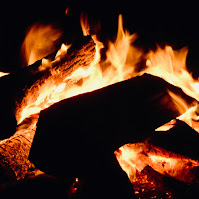I stood at an elevator door the other day and pondered what I would do and how I would fare if In case of fire, elevators will be out of service. Use stairs were to happen to me.
As an 81-year-old, 6’5”, 185-pound man who uses a cane, I am not sure I’d make it down the stairs in time. Neither am I sure anyone else should, or even could, really help me, especially in the crush of other people fleeing that fire. Lots of people could carry a small child to safety, and should. But me?
And if I used a walker or wheelchair, my chances of getting out would be near zero. I know first-responders search, if they can, for people like us, but that’s small comfort.
Since Russia’s invasion of Ukraine, my mind has been troubled by images of old men and women who are very likely dying helplessly in that war. The intense coverage of Israel’s war in Gaza has added to my horrific visions.
I suspect the elderly often are left behind in war zones. I read of us deciding to stay behind, to not try to flee to where it’s said to be safe, because we don’t want to burden others. But we also know that “fleeing” is not easy to do now that we are very old.
Accounts and pictures of children caught up in war tug at our hearts. Our focus on the youngest is completely understandable, and entirely appropriate. They are at once both the most appealing and the most vulnerable of us, and they are the future of every nation and people. Protecting them and saving them is perhaps the highest responsibility of those who are in a position to do so.
If a parent of a child were forced to choose between helping their child to safety and helping their parent to safety, whom might they chose? Who would we want them to choose? Who helps the elderly who are isolated from their families when their own survival is a moment-to-moment crisis?
There are less dramatic and visible ways in which the elderly are surely left behind. Who wins and who loses in a physical struggle for scarce food? Most of us need more medical care and depend upon more prescription drugs than we did when we were younger. In war zones, such resources, where they are available, will naturally go to those with the most immediate needs. I had cataract surgery last week. I am sure no one is getting that simple procedure in either Ukraine or Gaza today.
There must be many more elderly victims in Ukraine and Gaza than we tend to consider. Few counted for much in the calculations leaders made when deciding to start the wars there, or as they decide whether and how to continue them. We are relatively expendable, and we know it. Our dreams for our old age and our hope that we might die in peace are not all that important on the scale of things when it comes to war and peace.
We are the oldest victims of something that should never happen to anybody, ever, at any age.

